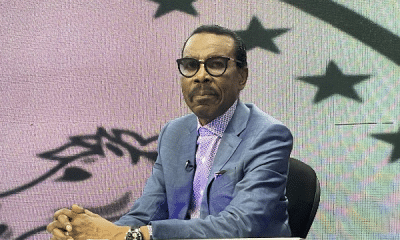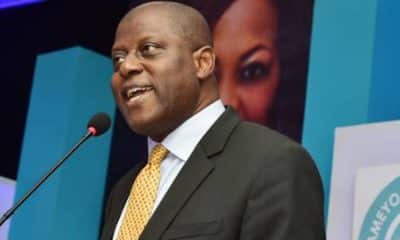Business
Many Businesses May Collapse Over Energy, FX Crisis – Rewane

Nigerian economist, Bismarck Rewane has raised concerns over the rise in fuel prices in the country amid poor electricity power supply.
In a conversation with journalists over the weekend in Lagos, Rewane said many businesses are at the risk of collapse with the recent development which he described as unpalatable to firms.
The economists observed that businesses were under pressure and the margins were being compressed.
He said: “Two things are happening: one electricity supply has dropped and the price of diesel went up by 300 per cent. So, when you add the two together you will find out that there was an increase in the cost of power.
“Two, the foreign exchange availability was reduced significantly. Therefore, people became desperate to replace their inventory.
“Therefore, it is not surprising that businesses are under pressure and their margins are being compressed. The point is that with the cumulative effect of the decadence and adequate pricing, the cost of producing electricity is much more than what the tariff is giving them.”
According to him, due to the unpleasant situation witnessed by the companies, every day they produce, they gradually move closer and closer to their collapse.
“Because in economics, you produce where your marginal revenue is equal to your marginal cost, but here, the marginal cost is higher than the marginal revenue,” Rewane noted.
He added: “That is the basic rule of economics and that is happening in the electricity market. And for the foreign exchange market, the supply of forex fro basic inventory is not available and, therefore, the more unavailable it is the more people have to buy forex at a prohibitive cost. So, cumulatively, all of these things are leading to a massive increase.”
On his part, a member of the Nigerian Economic Summit Group, Dr, Ikenna Nwaosu, said, “This has been spoken by so many people and even if i should speak, I will be speaking like a broken record. The Presidential Economic Advisory Committee has previously listed the implications of this state on the economy.
“I think that is the highest economic advisory body to the government aside from the National Economic Council. So they have listed it, the question is: What is the government doing about this? We don’t have a response.”












